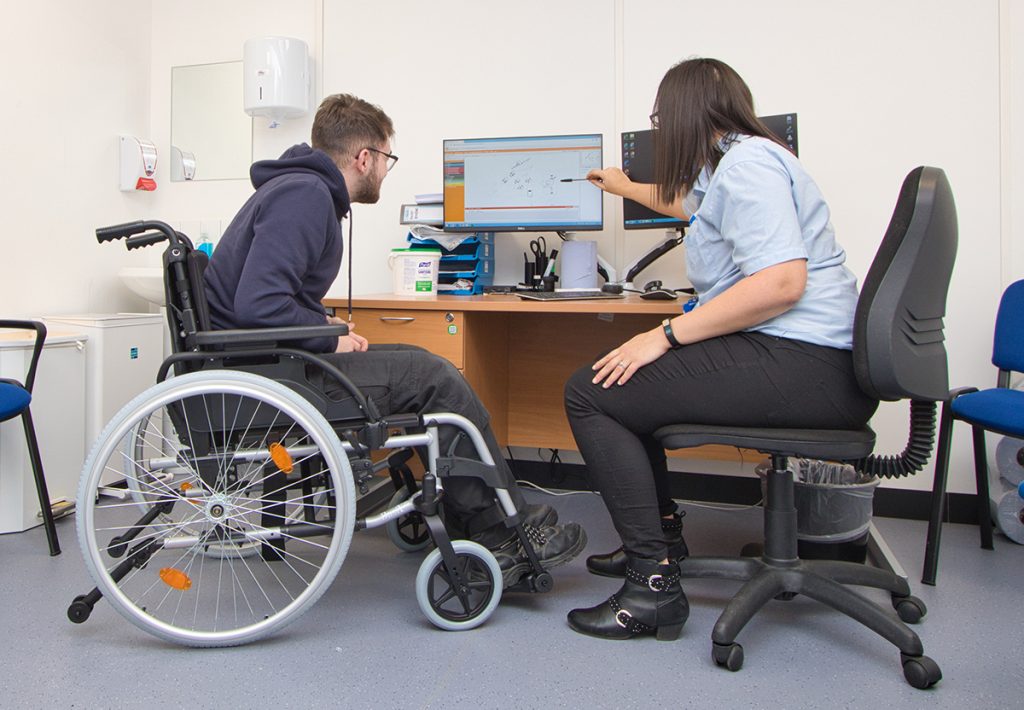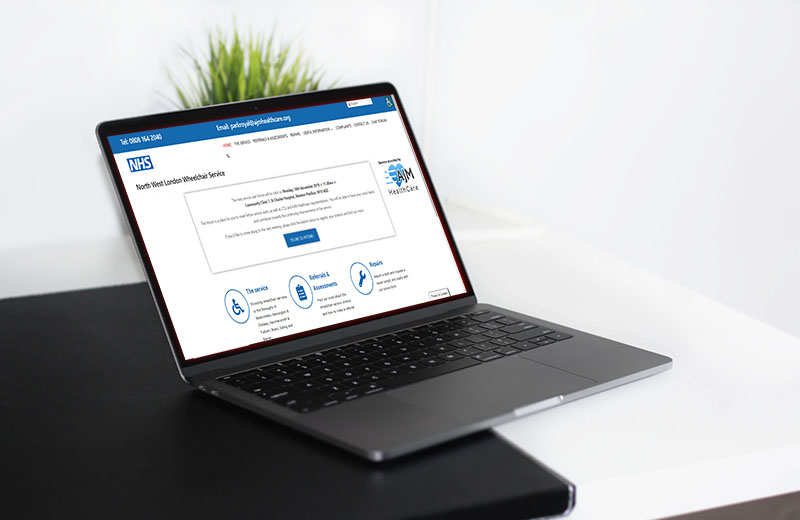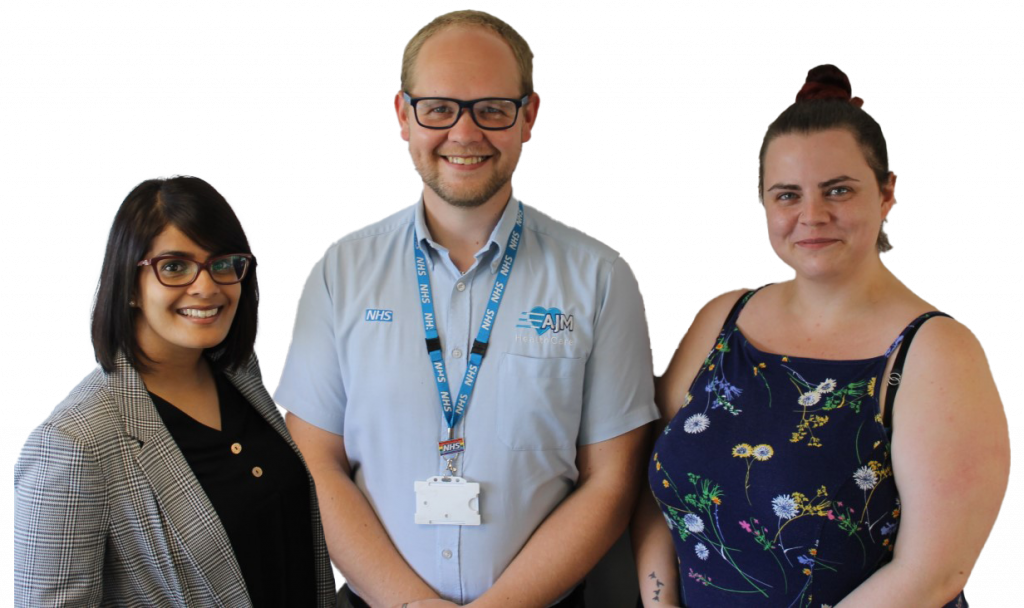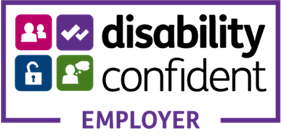
AJM Healthcare is one of the leading providers of NHS wheelchair services in the UK.
Our corporate strategy is to focus exclusively on wheelchair services and this approach has benefitted commissioners and service users through total dedication to excellent wheelchair service delivery. All quality initiatives and research and development budget are entirely allocated to wheelchair services. While other providers have diversified into other types of equipment contracts, we remain unwavering in our chosen path, with our reputation grounded therein.
Our response to the coronavirus pandemic
The health pandemic has presented significant challenges to service provision, but we have been able to respond effectively because we have the staff and systems infrastructure in place.
When many of the NHS wheelchair services closed their doors when the lockdown was announced, we managed to keep things business as usual for our service users, with priority on the most vulnerable individuals.
We developed and initiated a business continuity plan and risk management process specifically for COVID-19, to understand what processes we could use to improve our services with many restrictions in place.
Clinical processes were revised to protect service users and staff from the virus according to national guidelines, balancing the need to minimise contact whilst simultaneously ensuring people’s safety by facilitating their mobility.
All unnecessary travel was suspended, with a corresponding increase in the use of conference and video calls.
We assisted in both preventing hospital admissions, and facilitating hospital discharge. Senior managers met daily to review key metrics and respond to the national situation as it unfolded.
Our priority was to serve the community as a whole; redeploying our people – to NHS Nightingale and other services – and repurposing equipment to where resources were needed the most.
The pandemic has brought all of our colleagues together with a common goal and we are proud of the way they have embraced and respected a new way of working. This includes working from home, video conferencing, remote clinical assessments, socially distanced handovers, one-way systems in service centres, additional cleaning regimes, extra ATP testing and extra PPE.
Our focus is on good management, regular communication, and working directly with service users; principles that we believe will mark us out in our work with other CCGs as we offer this approach as a new national service.
Partnership and engagement

Due to our investment in people, we have appointed a partnership and engagement team for all of our services, whose focus is to engage with service user groups, to ensure that service users are given a strong voice within the company.
In North West London, we engaged with the existing service user group before contract award and have continued to this day. Our flagship ‘template’ website https://northwestlondon.wheelchair.services was co-designed with members of the North West London service user group and CCG representatives.
Our service user forums have been kept going throughout the pandemic through virtual meetings. These are proving increasingly popular, particularly with those who have previously been unable to attend the face-to-face meetings. To complement these, each service user group also has its own Facebook group, where we have set up a mentoring scheme for information sharing within the local community.
The partnership and engagement team actively seeks out individuals, groups and organisations to explore key issues in more depth. This provides an opportunity to work holistically to co-design solutions for the benefit of all. For example, as a result of engagement, we have developed a 24-hour call-handling facility for emergencies, where the service user can talk to a real person, rather than an automated answering system.
Our guiding principles are to: have ongoing, meaningful conversations that support collaborative solutions; incorporate co-production and co-design into everyday working; ensure that people feel confident that their voices are heard by our board, and that strategies, plans and policies are developed around them using the principal of ‘Nothing about us without us’; and to have systems in place to ensure representation of the broadest section of the community that we serve.
Personal wheelchair budgets

Monica Sampla, Joseph-Michael Woolmer and Heather Campbell
As mentioned above, we know it is important for our service users to have their voices heard, not only in the way their service is run, but also in allowing greater flexibility, choice and personalisation, so that wheelchair users can express their individuality.
One of our service users expressed it beautifully:
“I think I’m still in shock! I have butterflies in my tummy as I’m so excited about this chair, it’s really going to change my life. I had no idea these types of chairs existed.
“I just felt I wanted to say thank you to you again and let you know how much I appreciate you helping me!”
We have a dedicated team who work hard to raise the profile of personal wheelchair budgets, not just with wheelchair users, but throughout the organisation through interactive virtual roadshows. We believe that early intervention is key; we signpost wheelchair users to find out more information about personalisation prior to their appointment.
We make sure our service users’ lifestyles and choices are understood to get the best possible outcome for them.
Disability Confident Employer

We are proud to be a Disability Confident Employer. We positively encourage and support the recruitment, retention and development of disabled people. We are dedicated to making the most of the talents that disabled people bring to the workplace.
One of our partnership and engagement officers is also a service user, and has been extremely beneficial in increasing our understanding of the challenges disabled people face on a daily basis. With this understanding, we have been able to improve our learning system to ensure that all of our colleagues develop greater disability awareness.
COVID-19 backlog support
Our collective fight against COVID-19 has thrown a lot of health and social care services off track. We have worked closely with other wheelchair services throughout the pandemic through the BHTA scheme, which has brought providers together to fully support the needs of wheelchair users whilst the NHS is under extreme pressure.
As a result of our COVID-19 response to date and previous waiting list initiatives, we are ideally placed to help health economies recover from backlogs caused by the pandemic.
We have a wheelchair service backlog support system in place throughout the UK. Our national, dedicated team is available for deployment in under eight weeks. The support this team can offer can be tailored to specific CCG and wheelchair service requirement.
Our team can analyse and identify where any gaps might have developed in wheelchair service provision and work with wheelchair services to provide continuous virtual and on-site analysis to support the clearing of waiting lists.
Within the last year, we successfully deployed our team to clear 383 cases, working alongside the NHS Portsmouth Wheelchair Service.
As a result of the project, we’ve developed our backlog solution and we are confident that our exclusive focus on wheelchair services will enable us to provide exceptional backlog support to other CCGs as we offer this approach as a new national service.
As always, time is of the essence to minimise the potential for harm to service users who are experiencing long waits and to keep the associated costs from spilling over into future financial years.
If you’d like to know more about how we can help with reducing wheelchair service waiting lists, contact Guy Eatherington, Business Development and Customer Relations Director.
Email: hello@wheelchair.services
Tel: 07850 503048